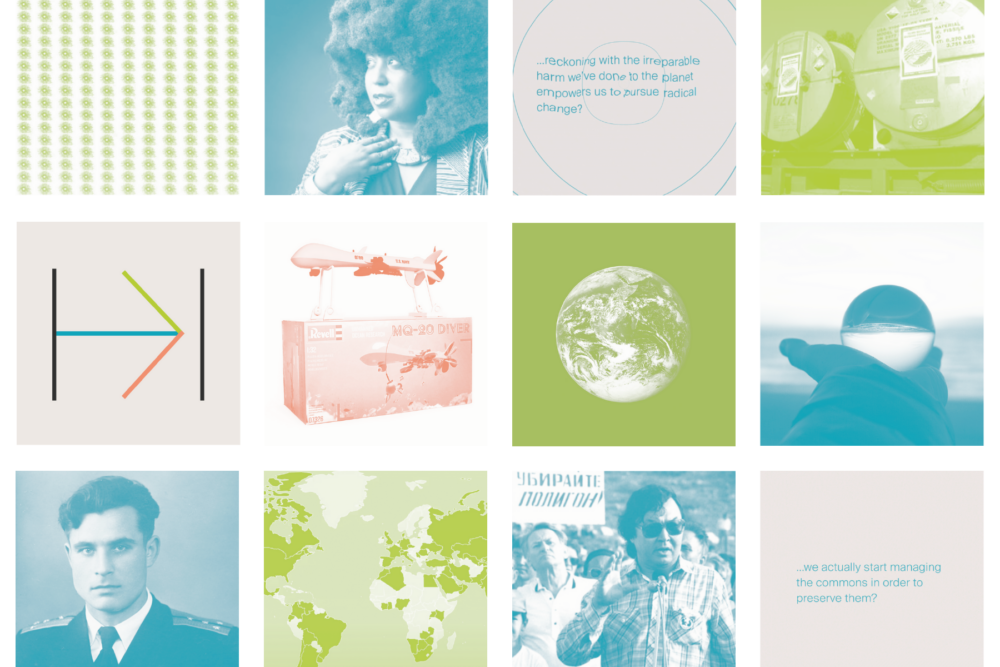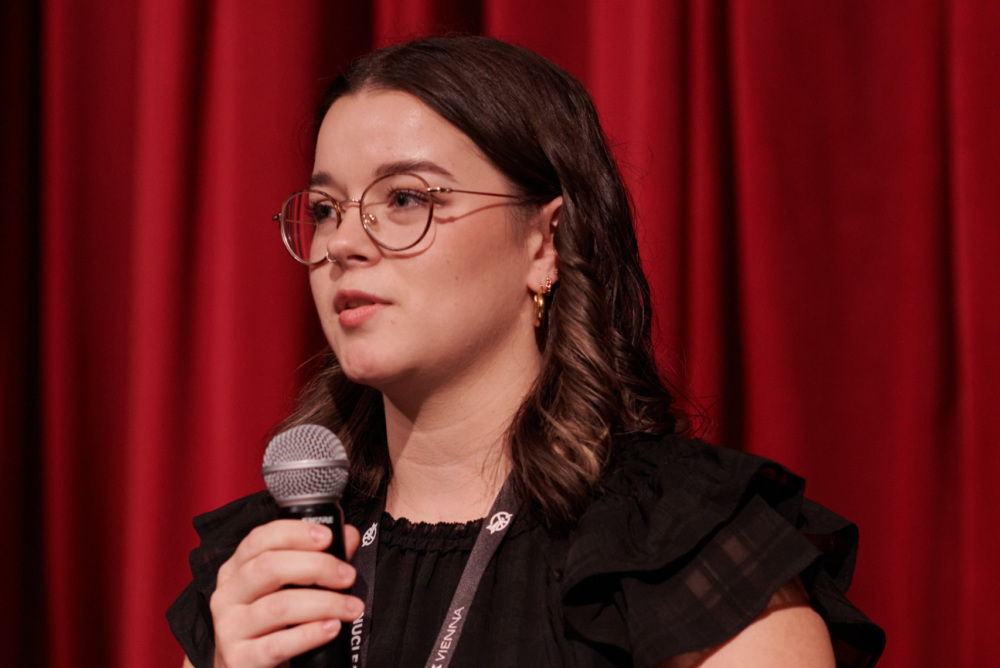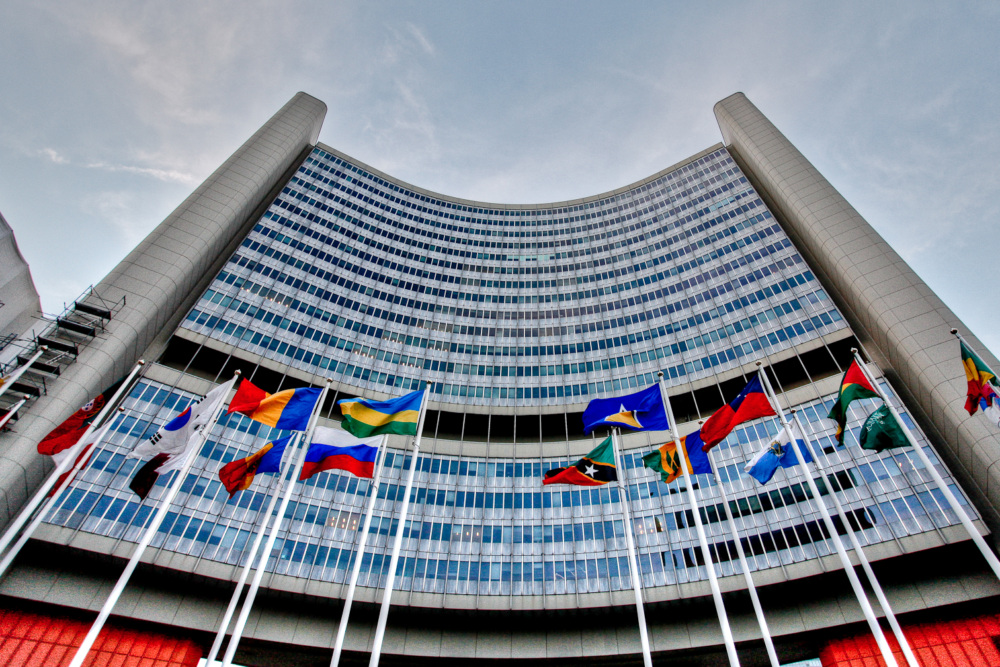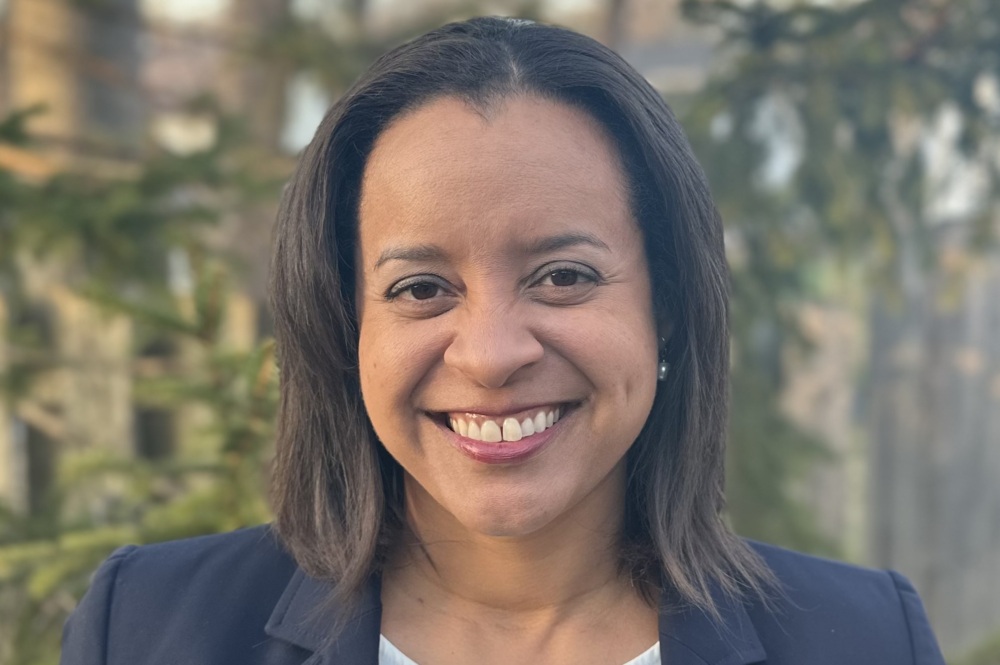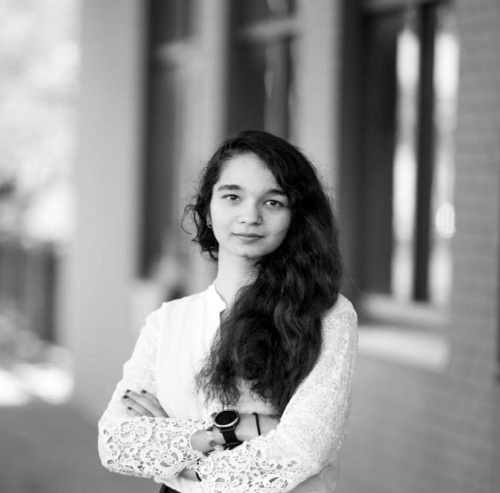
Aya Al-Shakarchi
Intern, Communications
Atomic Pulse
In 2019, the Nuclear Threat Initiative (NTI) co-founded Horizon 2045, a collaborative effort to end the nuclear weapons century that began with the development and use of nuclear weapons in 1945. According to its theory of change, Horizon 2045 “was designed to challenge conventional wisdom about the efficacy of nuclear weapons as tools for maintaining global security.”
Isabelle Williams, senior director for NTI’s Global Nuclear Policy Program, serves as project lead for Horizon 2045. NTI intern Aya Al-Shakarchi interviewed Williams about the initiative.
Can you describe the project Horizon 2045 and how it started?
Project Horizon 2045 is a collaborative effort set up by NTI, N Square, and the Center for Complexity at the Rhode Island School of Design (RISD). The project has the ambitious goal of scoping out an alternative security system for a world in 2045 that will be safer for humanity and where we no longer depend on nuclear weapons. From its inception, we wanted to create something unique that we could contribute to the nuclear field and recognized that these three organizations each have their own approaches, expertise, and audiences which would help strengthen our reach and impact.
Why 2045?
2045 will recognize 100 years since nuclear weapons were used in Hiroshima and Nagasaki. It is always tricky to pick a date with our work, but 2045 seems to be a good goal. This gives us time to design and build an alternative future, but it really isn’t that far away and with things around us changing so quickly, we need to have a sense of urgency.
How does Project Horizon 2045 stress that the issue of nuclear weapons is as urgent and challenging as climate change and pandemics?
This has become a big part of our work. We are looking at the other global challenges that humanity is grappling with such as evolving technologies and climate change and trying to better understand how these are interconnected with nuclear weapons. For example, to address these issues will all require global cooperation between governments, non-governmental organizations, civil society, and other sectors. It is hard to imagine a world where we continue to threaten each other with nuclear weapons but have collaborated to solve for these other global threats. This needs more attention. We need to address how nuclear weapons are holding us back from the cooperation needed for our long-term prosperity.
Did the nature of your work on Project Horizon 2045 change after the war broke out in Ukraine?
Yes. For several decades now there has been a sense of complacency. Most people seem to believe that the issue of nuclear weapons has been solved or that there is no need to worry as this issue is in the hands of experts and governments. Russia’s invasion of Ukraine and President Putin’s thinly veiled nuclear threats put a spotlight on nuclear weapons. It has reminded people that these dangerous weapons remain with us. It opens the question of risks vs benefits of continuing to rely on these dangerous weapons. They did not deter the aggression that Putin is carrying out in Ukraine, but there’s also a concern that some governments and populations will look at this situation and conclude that nuclear weapons have served a purpose by limiting the response to the invasion. We need to be engaging in these debates.
Is there anyone else from NTI working on this project?
Yes, NTI President and COO Joan Rohlfing is a member of the Horizon 2045 Advisory Board, and Ravi Garla, Douglas Shaw, and Patricia Jaworek are all part of the team.
How do you engage the public with the project?
How we communicate about nuclear issues is really important to Horizon 2045. We need to have more people engaged in this issue, demanding change and accountability and asking smart questions of leaders and policymakers. We’re beginning to think about how we tap into different discussions and communities that care about global threats and the future of humanity. For example, how do we bring the threat of nuclear weapons into the groups taking actions to secure future generations and manage climate change? There are so many different ways of getting information out, from podcasts, social media, websites. This provides us with lots of opportunities to consider messages that can resonate with a wide audience and reach them in different ways.
Can you talk about the “Whole of Society” aspect of the project?
At the core of Horizon 2045, there was a sense that the nuclear weapon issue is held closely by a few people that have their own beliefs about nuclear weapons and that perceive themselves as having the knowledge, expertise, and credibility to influence nuclear policies and postures. A whole-of-society approach works to challenge and dismantle that model. As Horizon 2045 grows we hope to have attracted a whole community of partners. Organizations, individuals, and others who are aware of, impacted by, and/or care about nuclear weapons from all backgrounds and with varied skills and knowledge. In fact, we believe that engaging with, and listening and learning from, a wide range of people is critical to help us find answers, solve the nuclear weapons problem, and make progress in our goal.
Can you discuss the Horizon 2045 concept?
We have a “three horizons” approach. Horizon 1 is the present system. This work is focused on understanding the current nuclear system. How do we understand the role of nuclear weapons today? How do nuclear weapons interconnect with other issues? Who influences the system? Why has it been so difficult to change policies and reduce our reliance on nuclear weapons? Then we have Horizon 3, which is the future world. Here we focus on questions such as what does security look like in 2045 and beyond? What is the future we want? What are the types of scenarios – both predictable and not – that we should factor into our vision? Finally, we have Horizon 2 which acts as the bridge between Horizon 1 and 3. This focuses on the interventions and actions that need to happen to get us from where we are today to a desired future.
Why did you and your team choose to use a map to present the nuclear system?
As part of our work on Horizon 1, we decided that a map would be a good way to help us—and others—better understand the complex dynamics within the nuclear system and how they interact with one another. It was hard to map the system, and it remains work in progress. But it helped us to see the system as a whole and begin to better comprehend why the system has been so resistant to change. We hope that we’ve created a tool that helps others engage and enter this issue.
So, it’s like an ever-evolving project, not like a set-in-stone project.
Yes! We have begun testing the map and introducing it to different audiences. Based on the feedback, we hope to continue to improve the map both in terms of the content and the usability.
Then until 2045. Thank you!
Sign up for our newsletter to get the latest on nuclear and biological threats.
Jupiter Huang, NTI’s Communications intern, had the opportunity to speak with Mackenzie Knight, the program associate for Global Risk at the Federation of American Scientists (FAS), for this inaugural post of the Young Voices series.
Governments should use the 2024 International Conference on Nuclear Security (ICONS) to reaffirm their commitment to preventing nuclear catastrophe.
For Black History Month, Jupiter Huang, NTI’s communications intern, had the opportunity to ask Tiffany Blanchard-Case, director of the Office of Nuclear Material Removal and Elimination at the National Nuclear Security Administration (NNSA), about the importance of mentorship and her advice for young people interested in working on nuclear issues.
